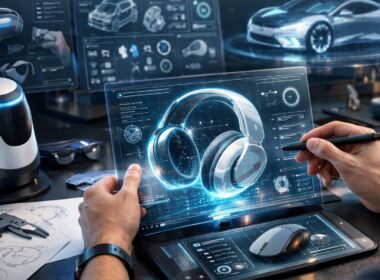Introduction
In the ever-evolving landscape of technology, the buzz around Artificial Intelligence (AI) and Data Science has often felt like an incessant drumbeat. The promises of revolutionary advancements, disruptive innovations, and game-changing transformations have filled the air. Yet, amid the cacophony of hype, it’s crucial to sift through the noise and uncover the practical applications that truly redefine the way businesses operate.
This isn’t another generic ode to the potential of AI and Data Science. Instead, we embark on a journey to explore tangible, battle-tested implementations that go beyond the glossy promises. From the trenches of real-world experience, this article delves into the nuts and bolts of how AI and Data Science are reshaping industries, driving efficiencies, and fueling strategic decision-making.
1. Predictive Analysis Powered by AI and Data Science
Healthcare – Clinical Predictions
Predictive analytics is utilized by clinicians, healthcare organizations, and health insurance companies to assess the probability of patients developing specific medical conditions like cardiac problems, diabetes, stroke, or COPD.
“There’s a lot of national data, EHR data, biometric data, claims data, and by pulling all that together, you can create models that can then be used on a national or community or even an individual level to predict the likelihood of these disease states,”
Nicole Bengtson, managing director at consultancy Huron and executive lead
These models can be applied on a national, community, or individual level to anticipate the likelihood of various disease states. Initially adopted by health insurance companies, this technology is now instrumental for healthcare providers in identifying patients who require interventions to prevent diseases and enhance overall health outcomes.
Fintech – Improving Fraud Detection Systems
In the fintech sector, predictive analytics is used mainly in the areas of online transactions and payment processing, to improve fraud detection systems. Massive databases including transaction history, user activity, and other pertinent information are analyzed by AI algorithms. The predictive AI models can anticipate and stop security breaches or illegal transactions by seeing trends suggestive of possible fraudulent activity. Fintech organizations proactively increase their security measures by using real-time monitoring and analysis, which safeguards the core of the institutions and their clients from potential cyber threats.
Education – Predictive Analytics to Enhance Institution’s Performance
In education, predicting student outcomes is crucial. Traditionally, manual analysis of exam results and attendance data was common, leading to potential delays and data silos. With technological evolution, the rise of digital learning has generated vast amounts of data.
Predictive analytics leverages this ‘big data’ to offer holistic insights into an institution’s performance. By modeling data, educational providers can proactively address future issues, enhancing the student experience and improving operational efficiency. For example – Imagine a school using a predictive analysis tool to predict if a student will pass or fail a course based on past data. When a new student applies, they can plug the info into the tool to guess how well the student might do.
2. Deep Personalization Through AI & ML:
E-commerce – Amazon’s Product Recommendations
Amazon, a leading e-commerce giant, uses AI and ML models for personalization in its product recommendation system. By analyzing user behavior, purchase history, and preferences, Amazon’s recommendation algorithms predict products that users are likely to be interested in. This improves the user experience by displaying personalized recommendations on the homepage, in emails, and during the checkout process. This level of personalization not only enhances the user experience but also boosts Amazon’s capability of upselling and cross-selling on its platform.
Retail: McDonald’s Drive-Through Personalization
Back in 2019, McDonald’s came up with a cool idea to make the drive-thru experience more personal. They started using a smart system that uses machine learning. This system looks at different things like the weather and figures out what might be good to eat or drink. For example, if it’s a chilly day, the digital menu suggests a nice hot tea or coffee.
This idea of personalization isn’t just for fast food; a British fashion company called Thread is doing something similar. They use AI to give personalized clothing recommendations to each customer. People take style quizzes to tell the company about their fashion preferences. Then, based on that info, Thread comes up with personalized suggestions that match what the customer likes and doesn’t like. It’s like having your own virtual stylist!
Travel – Booking.com’s Dynamic Personalization
Booking.com uses a lot of AI & ML-driven experiments on its website and app, especially in the ‘purchase funnel.’ They want to make the experience super personalized for users. Right now, they use AI to customize displays based on user interactions, search history, and booking patterns to dynamically adjust the presentation of hotel options and recommendations.
“The minute you go into a search result, the order of what you see is personalized on what we know. If you logged in, we also know your history of bookings so we can personalize it even more.”
says Pepijn Rijvers, CMO, Booking.com
The personalization starts with basic info like where you’re searching from, helping them figure out what places you might like. But it goes deeper, and they organize each listing based on what they think will make you most likely to book.
This personalization strategy helps to generate higher conversion rates, increased user satisfaction, and improved overall user experience in the hotel booking process.
3. Detecting Anomalies at Scale
Banking – JPMorgan Chase’s Fraud Detection
JPMorgan Chase uses AI and data science in its fraud detection systems to identify anomalous activities and potentially fraudulent transactions. Advanced algorithms analyze vast amounts of transaction data, user behavior, and historical patterns to detect anomalies in real-time. By continuously learning from new data, JPMorgan Chase’s system becomes increasingly adept at recognizing unusual patterns and flagging transactions that may indicate fraudulent behavior. This proactive approach enhances the security of financial transactions and protects customers from unauthorized activities.
Insurance: Allstate’s Claims Fraud Detection
Through predictive modeling and machine learning, Allstate’s system assesses patterns in claims data, identifying irregularities that may suggest fraudulent activities. Their system looks at patterns in data and spots anything unusual that might suggest fraud. By automating this process, they can quickly go through lots of claims and focus on the ones that need a closer look. This application of AI contributes to the early detection of fraudulent claims, reducing losses and maintaining the integrity of the insurance industry.
Agritech: John Deere’s Precision Agriculture
In the field of agriculture technology (agritech), companies like John Deere leverage AI and data science for anomaly detection in precision agriculture. Sensors and IoT devices collect data on soil conditions, crop health, weather patterns, and equipment performance. AI algorithms analyze this data to identify anomalies such as unexpected variations in crop growth or signs of disease. By detecting anomalies at scale, John Deere’s precision agriculture solutions enable farmers to take timely corrective actions, optimize resource usage, and enhance overall crop yield and quality.
Conclusion: Where Rubber Meets the Road
In the grand narrative of AI and Data Science, it’s essential to move beyond lofty ideals and focus on the practical applications that drive tangible results. Predictive analysis, deep personalization, and fraud detection are just the tip of the iceberg. The key lies in adopting these technologies not as mere add-ons but as integral components woven into the fabric of business strategy.
For senior developers, e-commerce technocrats, CTOs, CEOs, and technology enthusiasts, the message is clear: the era of speculation is over. Embrace the code, dive into the algorithms, and witness firsthand how AI and Data Science are transforming industries, one line of code at a time. The revolution is real, and it’s happening where the rubber meets the road – in the practical, battle-tested applications that define the future of business.
Codewave.com: Unleashing the Power of AI
In the realm of AI-powered solutions, Codewave.com stands as a beacon of expertise. With a track record of crafting innovative solutions for global clients, Codewave.com combines technical prowess with a deep understanding of business needs.
Our team of seasoned developers, data scientists, and engineers is adept at translating complex business challenges into elegant, data-driven solutions. Whether it’s enhancing customer experiences, optimizing operations, or predicting market trends, Codewave.com has the expertise to deliver.
Ready to transform your business with AI? Get in touch with us today and unleash the power of data-driven innovation.
Codewave is a design thinking led digital transformation company enabling organisations with playful innovation using AI & ML, IoT & Edge, AR, VR, Cloud, Blockchain, and Data.







